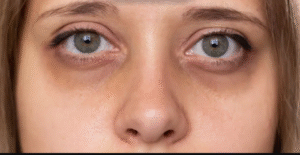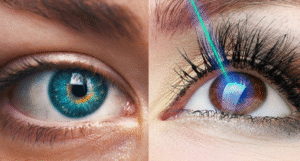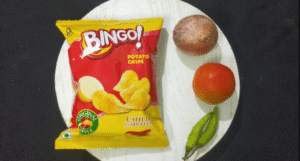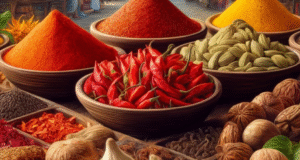What is the Care to be Taken After Gallbladder Removal Surgery?
Gallbladder removal surgery is a surgical procedure that is used to remove the gallbladder. This surgery helps in treating gallstones and preventing the formation of gallstones. Once you show noticeable signs and symptoms of gallstones, your doctor may recommend undergoing gallbladder removal surgery.
After undergoing gallbladder removal surgery , you may suffer from frequent loose & watery stools. In most cases, diarrhea lasts for about a few weeks to a few months. You can also suffer from pain and itching sensation at the site of the surgical area for a few days after the surgery. To get relief from these problems, you should follow all the instructions suggested by your doctor.
Care after gallbladder removal surgery:
Once the surgery is completed, your vital signs will be monitored and the doctor will evaluate your overall health condition. If your health is in stable condition, you can be discharged from the hospital with a few instructions regarding post-surgical care which helps you to recover quickly and also reduces the chances of recurrence of gallstones. They include:
- Look after your stitches and wound: Your doctor may use dissolvable stitches to close the incisions or cuts that are made during the surgery. Those dissolvable stitches should start to disappear by themselves within a week or two. If non-dissolvable stitches were used, you will need to go to the hospital or your doctor’s clinic after seven [7] to ten [10] days of the surgery to remove them. You will be informed by the doctor on how to take care of your wound and stitches, including how to dress a wound and when the dressing should be changed. You can notice the presence of scars at the surgical site, and they usually fade over time.
- Don’t eat high-fat foods: Avoid high-fat foods, fatty meats, fried or greasy foods, fatty sauces & gravies, and foods with rich creamy sauces for at least a week after the surgery. The amount of fat you eat at a time plays a major role in digestion. Smaller amounts of fat are easier to digest, while larger amounts can remain undigested and cause bloating gas, and diarrhea.
- Eat low-fat foods: Eating fatty foods right after the surgery can cause problems in your digestion. So you will be advised to eat less fat, and once you start recovering from the surgery, you can gradually add more fat into your diet. Eat low-fat foods that contain no more than three [3] grams of fat at a single serving like oats, white fish, lentils, baked fish, turkey fish, baked chicken, fruits, and vegetables. Before eating any packed food items check the labels for the fat content.
- Add fiber to your diet: You should add fiber foods like watermelons, bananas, strawberries, oats, barley, brown rice, cauliflower, lentils, peas, beans, and carrots, etc to your diet as they can help in softening your stool and decreases constipation. Eating fiber foods can normalize your bowel movements and reduce diarrhea. But, be sure you increase the amount of fiber slowly over several weeks because too much fiber at once can cause gas and worsens the cramping.
- Avoid high-fat dairy products: Consumption of milk and other dairy products containing high fat after the surgery can upset your stomach and can lead to diarrhea. To avoid this, you have to choose fat-free dairy products like low-fat cheese, low-fat yogurt, and skim milk. Avoid whole-milk dairy products because the fat content can worsen diarrhea.
- Stay Hydrated: If you are suffering from diarrhea, you may lose all your body fluids, vitamins, and minerals. So, you are advised to drink plenty of water to stay hydrated. You can also drink sports drinks that contain potassium, sodium, and chloride.
- Stick to a healthy diet: You should stick to eating a healthy diet until your digestion gets back to normal. You can get back to a regular diet only after complete recovery from the surgery. But it can take several days for your appetite to return. Sticking to a healthy diet helps you to improve your overall health condition as well.
You should stick to eating small, frequent meals instead of large portions to help you to feel better.
- Perform daily exercises: You may feel tired for at least one [1] week after the gallbladder removal surgery. So, take adequate rest for better recovery. Once you feel energized, you can perform easy and simple daily exercises for about fifteen [15] to twenty [20] minutes. This helps in avoiding the risk of blood clots after the surgery and also decreases the complications such as diarrhea, bloating, gas, and strain during bowel movements.
- Avoid alcohol and caffeinated beverages: Drinking alcohol and caffeinated beverages can harden your stool and lead to constipation. They also increase the strain during bowel movements and contribute to an increase in the complication after teh gallbladder removal surgery. So, your doctor will advise you not to drink alcohol and caffeinated beverages before a week of the surgery and after two to three weeks of the surgery.
- Stop smoking: Smoking can delay your healing process as it reduces the supply of oxygen levels to the blood vessels of the wound. Your doctor will advise you to stop smoking for 3 months before and after the surgery.
Conclusion:
Gallbladder removal surgery helps in treating and preventing the formation of gallstones. After the surgery, you can suffer from a few side effects like diarrhea, pain, and discomfort. To overcome those and to promote better healing with quick recovery, your doctor suggests you follow a few instructions. Even after following all those instructions, if you notice symptoms of gallstones, consult your doctor immediately and seek medical attention.





